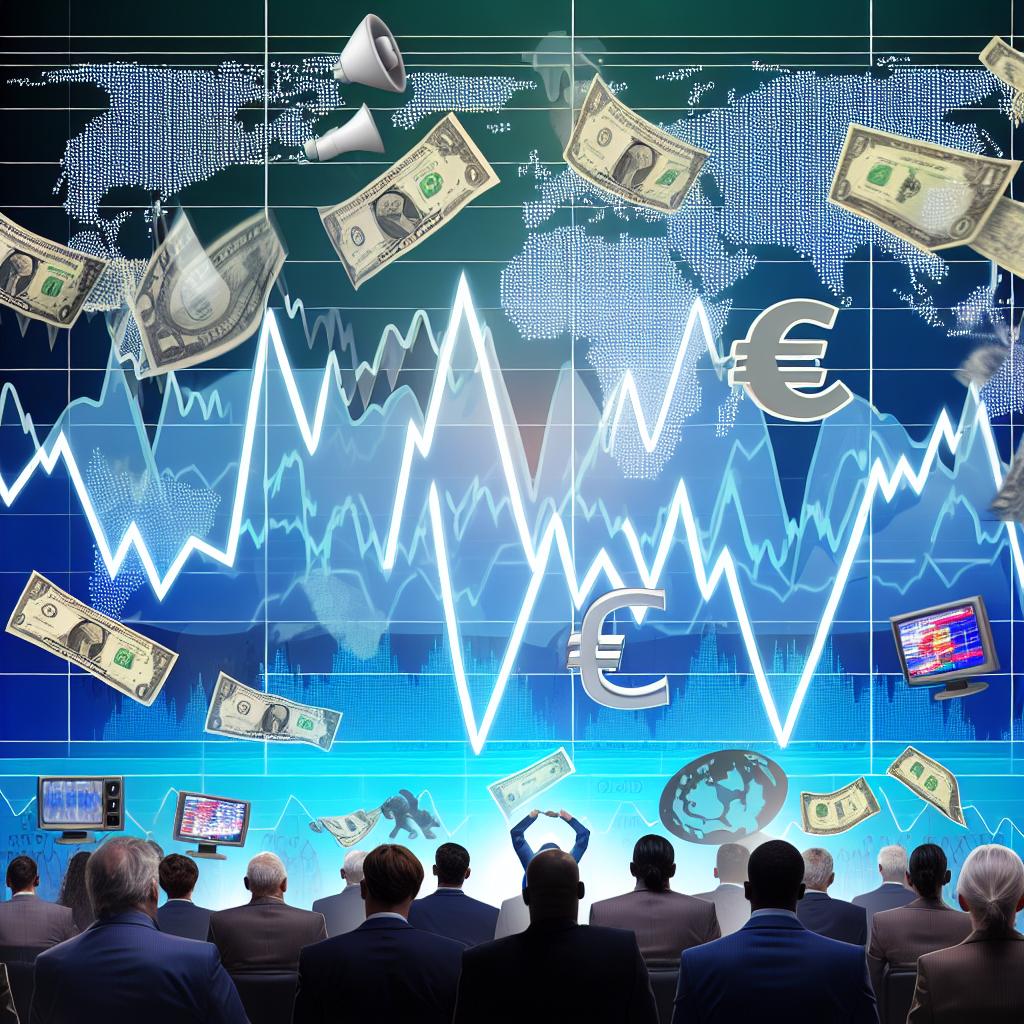The Influence of Market News
Market news plays a crucial role in the dynamics of forex day trading. The forex market is highly sensitive to information, and any significant news event can lead to dramatic shifts in currency prices. Traders often rely on market news to make informed decisions, reacting to announcements and reports that may impact currency values.
Types of Market News
Market news can be categorized into several types, each having a distinct impact on forex trading:
Economic Data Releases: These include GDP figures, employment reports, inflation rates, and consumer confidence indexes. Such data provide insights into a country’s economic health and can influence traders’ perceptions about currency strength.
Central Bank Announcements: The decisions made by central banks, such as changes in interest rates, can significantly affect currency values. Traders closely monitor statements from central banks for any indications of future monetary policy.
Geopolitical Events: Political instability, elections, and international conflicts can introduce uncertainty into the market, causing traders to adjust their positions in anticipation of potential currency values shifts.
Global Economic Indicators
The forex market operates within the context of a global economy, making international economic indicators particularly relevant. Indicators such as the U.S. Non-farm Payroll, the European Central Bank interest rate decisions, and China’s Gross Domestic Product growth figures are key to understanding broader market trends. The data released through these indicators often reflect the economic health of the major economies and provide a basis for traders to assess international money flow.
The Role of Economic Events
Economic events are scheduled occurrences that can have a profound impact on currency prices. These events are usually anticipated, allowing traders to prepare for potential market movements.
Understanding Economic Calendars
Day traders often use economic calendars to keep track of upcoming events. These calendars provide detailed information about the timing and expected impact of economic events, helping traders to strategize their trades accordingly.
High-Impact vs. Low-Impact Events
Economic events are generally classified based on their expected impact on the forex market:
High-Impact Events: Events such as central bank meetings or major economic data releases can cause significant volatility in the forex market. Traders should approach these events with caution and potentially adjust their positions to manage risk.
Low-Impact Events: These events typically result in minor fluctuations and may not significantly affect the overall market trend. Traders often view them as less critical in their decision-making process.
Strategic Implementation
The preparation and reaction to economic events require well-thought-out strategies. Traders might use strategies like hedging to counteract the volatility posed by high-impact events, ensuring they can maintain stability regardless of market fluctuations. By placing trades strategically ahead of known impactful events, traders can better manage risk, prepare for potential scenarios, and make more informed trading decisions.
Strategies for Incorporating News and Events
Successful forex day trading involves not only understanding the relevance of market news and economic events but also developing strategies to incorporate this information into trading practices.
Preparing for Economic Announcements
Before major announcements, traders often position themselves by:
Analyzing Historical Data: Reviewing past data and market reactions to similar events can provide valuable insights into potential future movements.
Setting Stop-Loss Orders: To mitigate risks associated with high-impact events, traders often establish stop-loss orders to automatically execute trades if the market moves against their positions.
Scenario Planning
Traders might also run through scenarios to anticipate various potential outcomes of economic announcements. By considering different possibilities, they can develop backup strategies to avoid being caught off guard. Such scenario planning becomes a core component of risk management, especially in a market as volatile as forex.
News-Based Trading
Some traders adopt a news-based trading approach, where decisions are primarily influenced by recent news events. This involves:
Monitoring News Feeds: Staying updated with real-time news feeds enables traders to react quickly to unfolding events.
Quick Decision-Making: News-based trading requires the ability to make swift decisions, capitalizing on market movements immediately following news releases.
Information Verification
Reliable sources are essential in news-based trading to ensure accuracy in decision-making. Traders often cross-reference information from multiple sources to avoid trading based on rumors or false reports. By verifying information, they not only prevent costly mistakes but also reinforce confidence in their trading decisions.
Balancing Technical Analysis
While news and economic events are pivotal, they are not the sole factors influencing forex trading. Many traders utilize a combination of fundamental and technical analysis to develop well-rounded trading strategies. This involves:
Utilizing Technical Indicators: Traders integrate technical indicators with news analysis to gain a comprehensive view of the market and identify potential entry and exit points.
Assessing Long-Term Trends: While day trading is short-term by nature, understanding long-term market trends helps traders align their strategies with the overall market direction.
Iterative Learning
Through iterative learning, traders refine their strategies over time by evaluating the outcomes of past decisions. They might keep detailed trading logs and frequently back-test strategies against historical data to identify what has worked well and which areas need improvement. This continuous learning process is critical for adapting to the ever-changing forex market.
This article was last updated on: June 5, 2025
